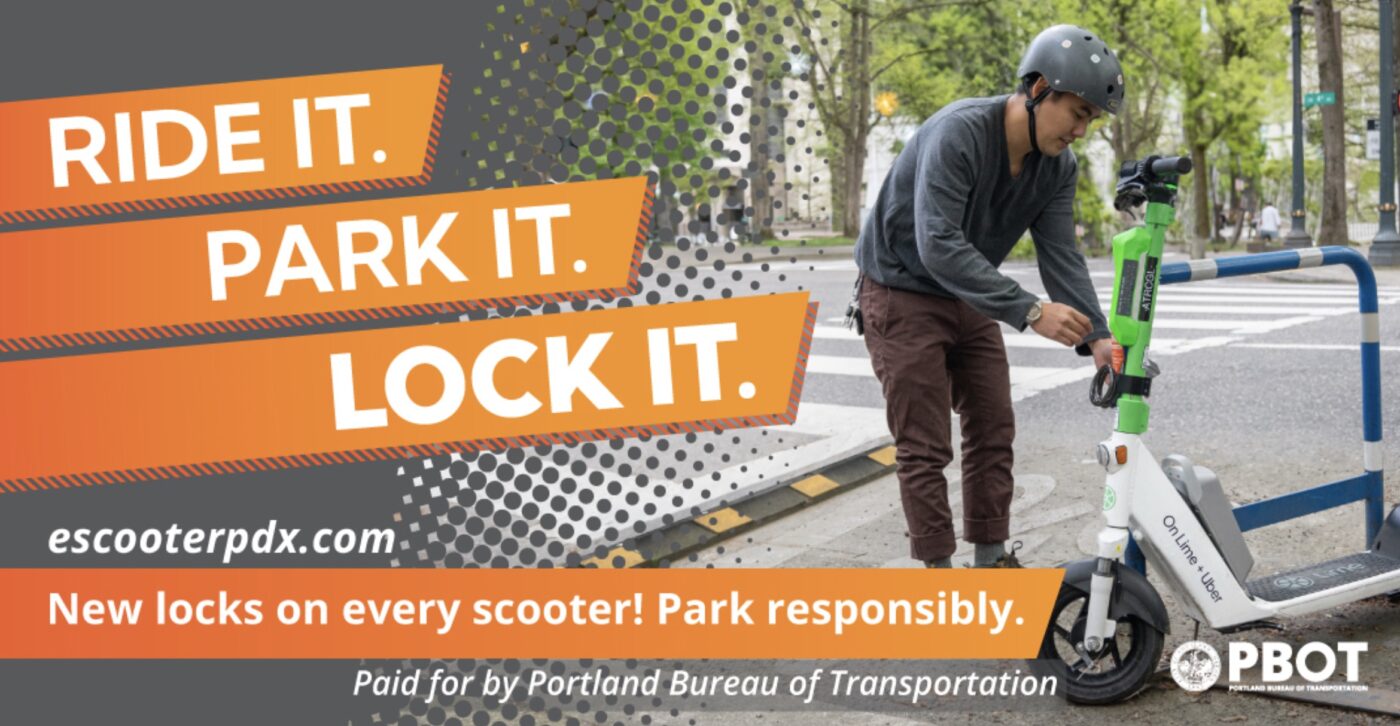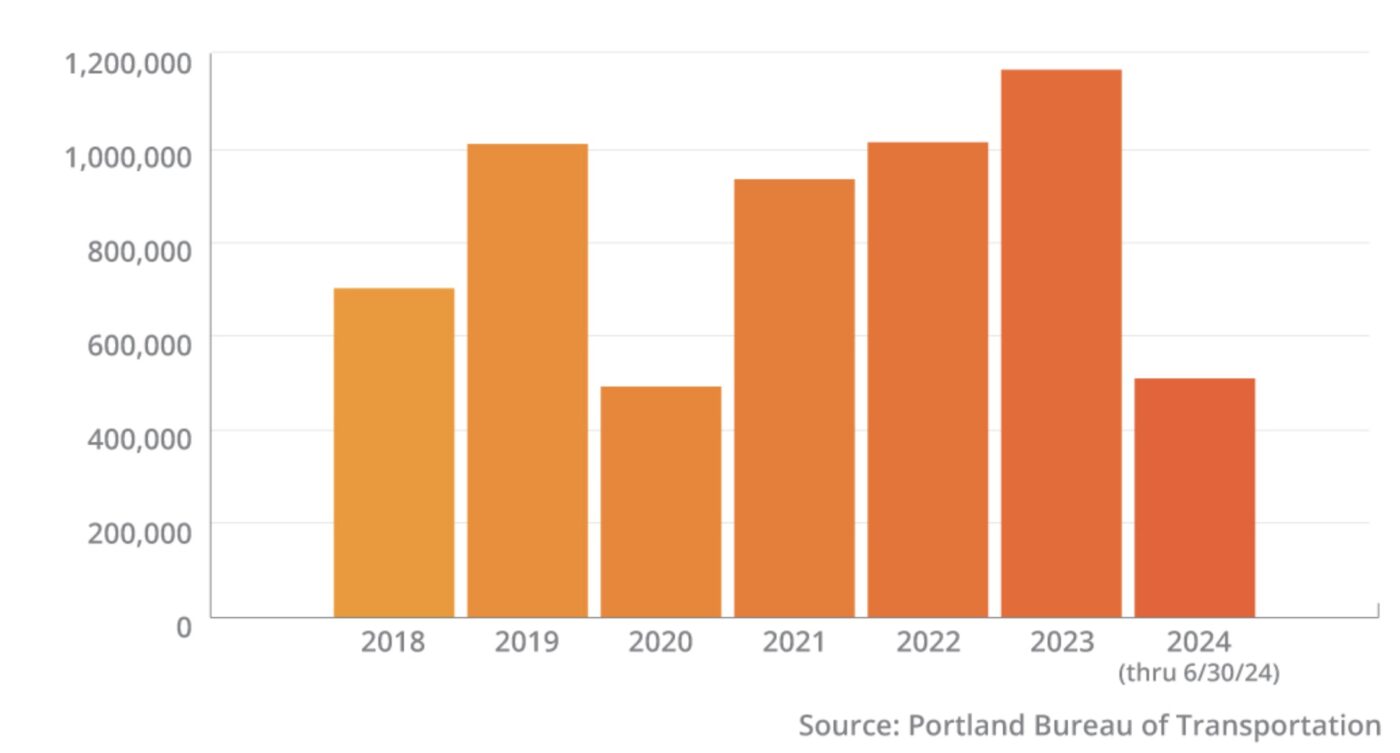
The City of Portland has doubled down on their shared electric scooter program. At a press conference last Thursday, just steps from the Better Naito protected bike and scooter lanes, Portland Bureau of Transportation (PBOT) officials and their partners announced multiyear contracts with Lyft and Lime to expand the scooter fleet and upgrade the program to permanent status.
“Today we celebrate a new, permanent era of micromobility,” said Hayden Harvey, government relations director for Lime, who spoke at the event.
PBOT Director Millicent Williams also spoke at the press conference. She touted the public-private partnership and said it will, “make e-scooters more accessible to Portlanders, while also showing cities across the nation that sustainable transportation can be good business.”
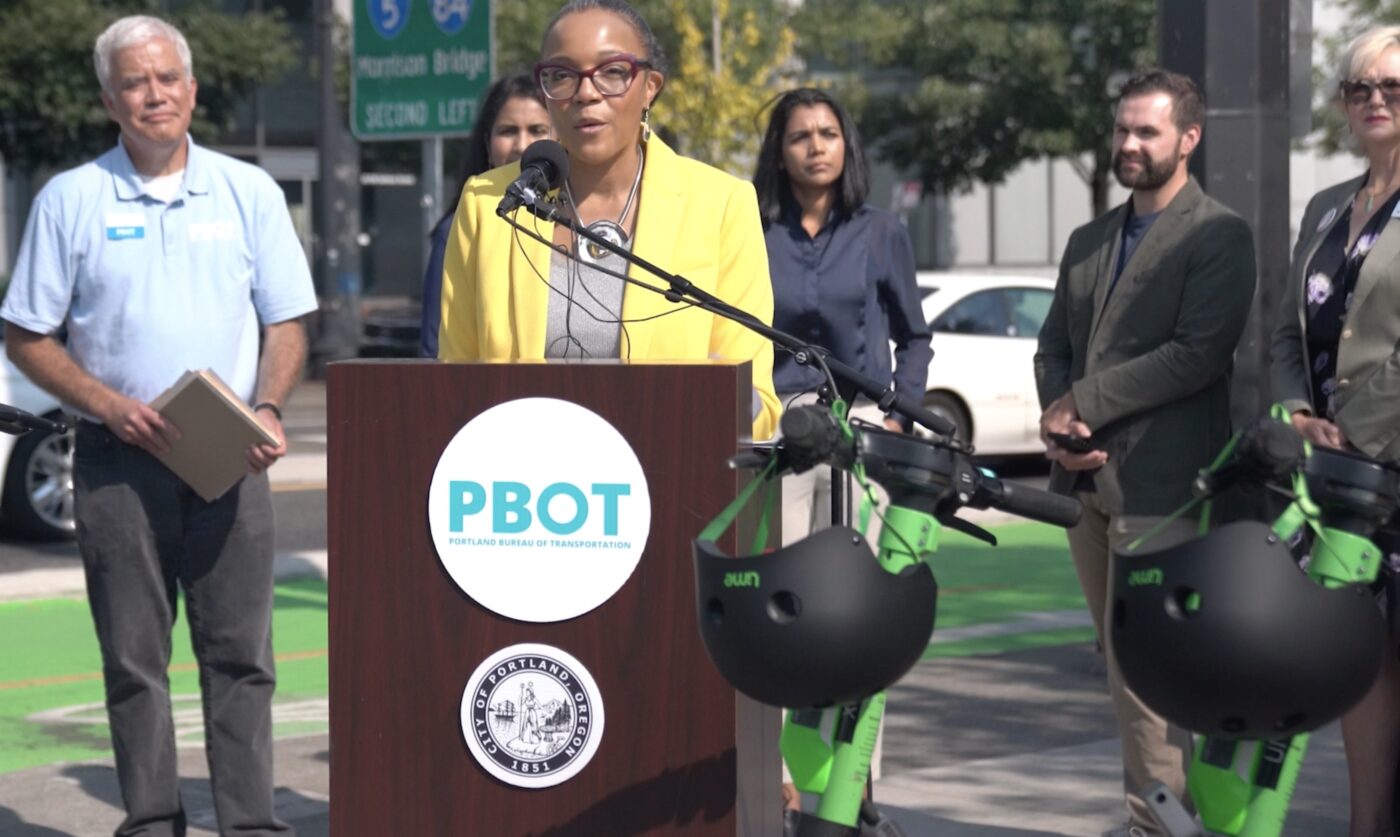
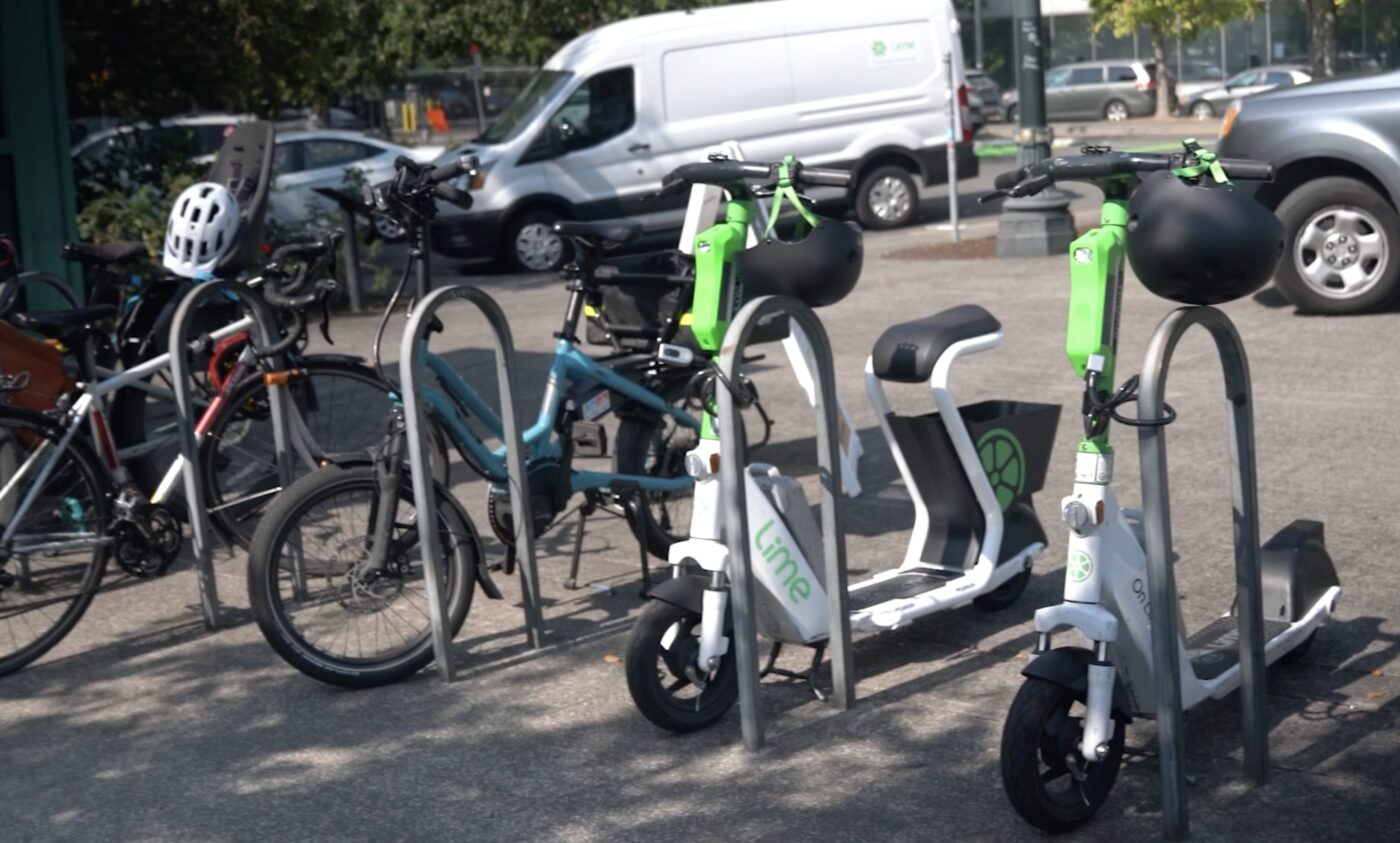
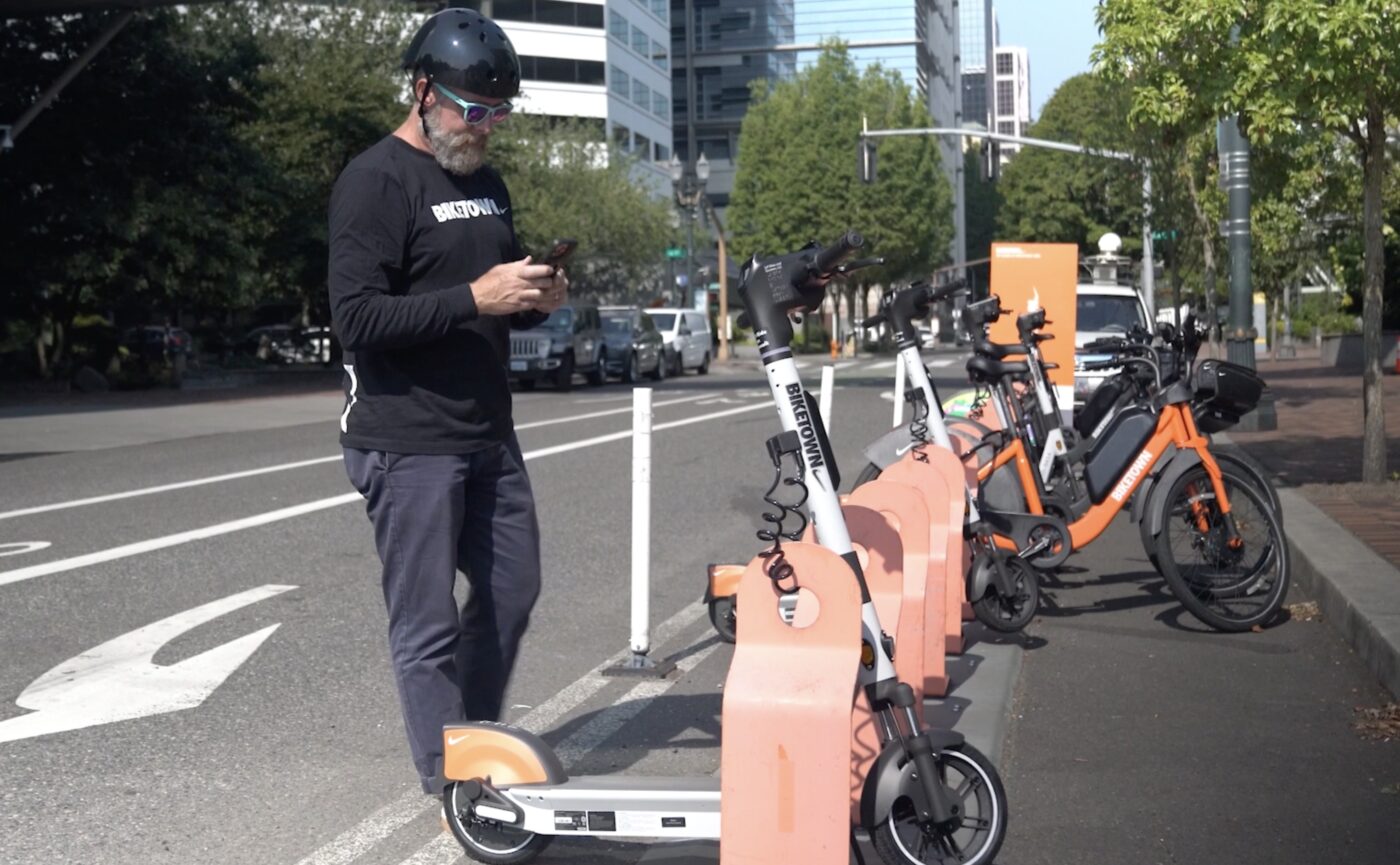
Lime and Lyft are well-known quantities to PBOT. Lime has had electric bikes and scooters on Portland streets since 2018 and was named one of the five e-scooter providers when the pilot first began early that same year. And Lyft is the company behind Portland’s Biketown bike share system, which launched eight years ago. Lime’s deep experience in the micromobility space and the tight integration of the Lyft scooters with the existing Biketown software (you can now get bikes and scooters on the same app) and infrastructure (scooters use same stations as bikes) give PBOT a very strong foundation for success.
Another change with this batch of e-scooters is that each one of them comes with a cable lock. This feature is more about the right-of-way than security, since one of the biggest PR problems for e-scooters is how they often clutter the right-of-way and cause accessibility issues. By requiring scooters to be locked after each trip, PBOT increases the likelihood that riders will attach them to racks or sign poles at the periphery of sidewalks — leaving more room for pedestrians.
PBOT hopes its new “Ride it. Park it. Lock it!” marketing campaign drives the message home. At one point at Thursday’s press conference, The Street Trust Executive Director Sarah Iannarone led the crowd in a chant of the new slogan.
If education doesn’t work, PBOT also has a new, centralized dispatch number via the 311 system to report scooters that are blocking sidewalks or curb ramps.
But PBOT might be trading one PR problem for another. With a scooter fleet expected to reach 3,500 between the two companies, many of them will be locked to bike parking spaces. One BikePortland reader emailed us to say, “I like that scooters will be less likely to block the sidewalk, but I don’t like the idea of sharing limited bike parking spots with them.”
PBOT will have to keep up parking and other infrastructure demands to handle these scooters, and given the popularity of the vehicles, they should have the confidence and political capital to do so. At the press conference, Director Williams was happy to share ridership data that shows scooters have cemented their place in Portland’s mobility mix. After rides dwindled during the pandemic, people took 1.1 million trips in 2023, slightly more than 2019.
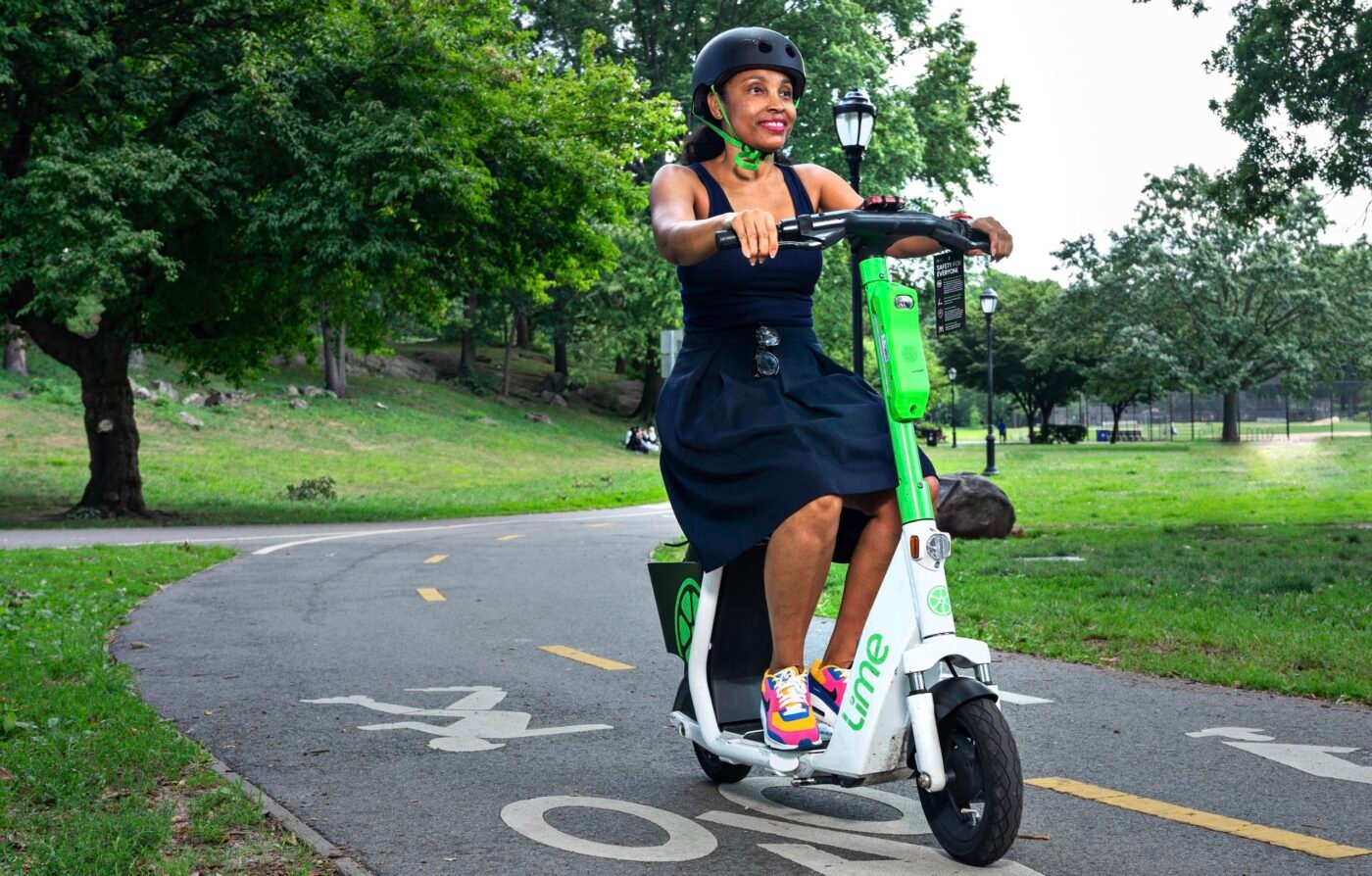
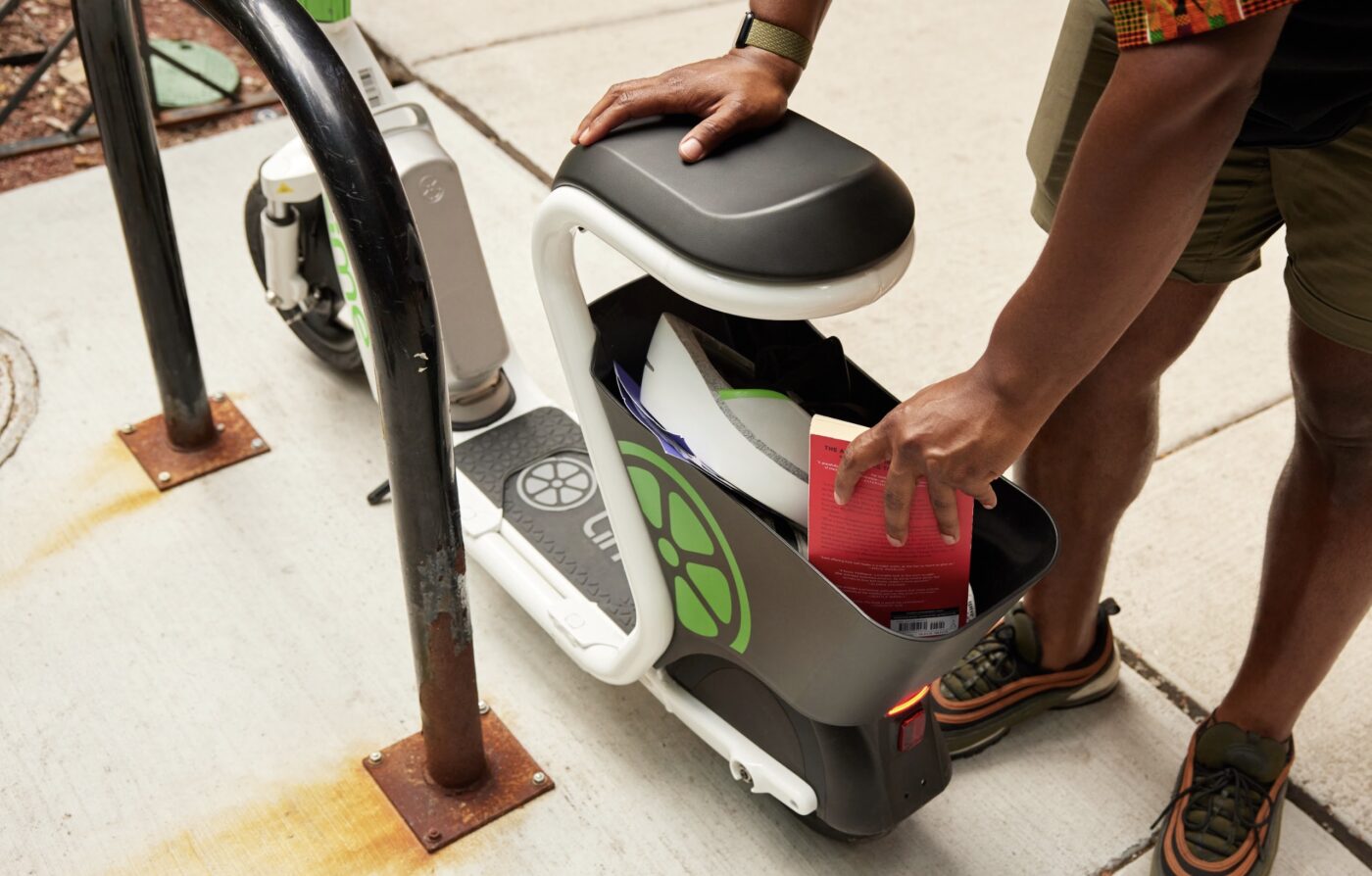
Some of those riders might opt for Lime’s new seated scooters, which Director Williams test rode at the press conference. Based on the same chassis as a regular scooter, the sit-down version has a sturdy seat and rear bucket to increase its comfort and utility. A spokesperson for Lime told BikePortland they plan to start with 25-50 seated scooters “and scale up from there.” Seated scooters have been a priority for PBOT since at least 2019.
Whether sitting or standing, these scooters give Portlanders another viable way to get around without having to drive a car. And for folks who can’t afford the unlock and per-minute fees, both Lime and Lyft offer low-income access options. And Suma, a Portland nonprofit that works to bridge the digital divide, has an app where folks who qualify can receive free 30 minute rides.
“Transportation is a vital service that people depend on,” said Suma Vendor Manager Momoko Saunders. “Micromobility has the opportunity to fill a large gap left by our car-centric transportation system.”
Learn more about the e-scooter program on PBOT’s website.


